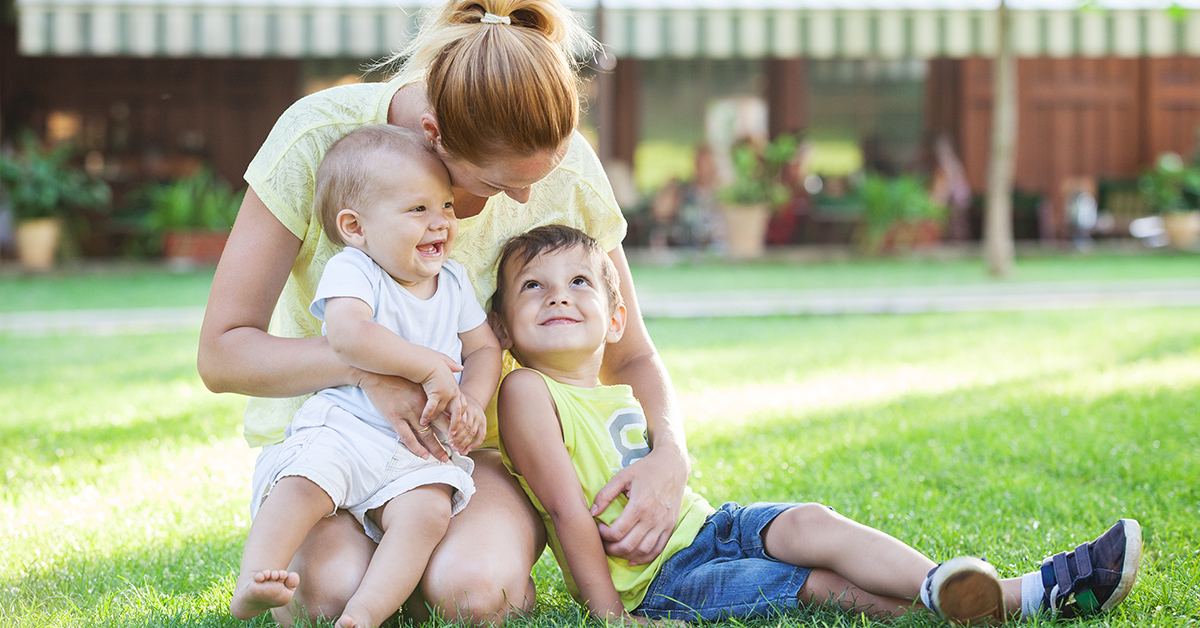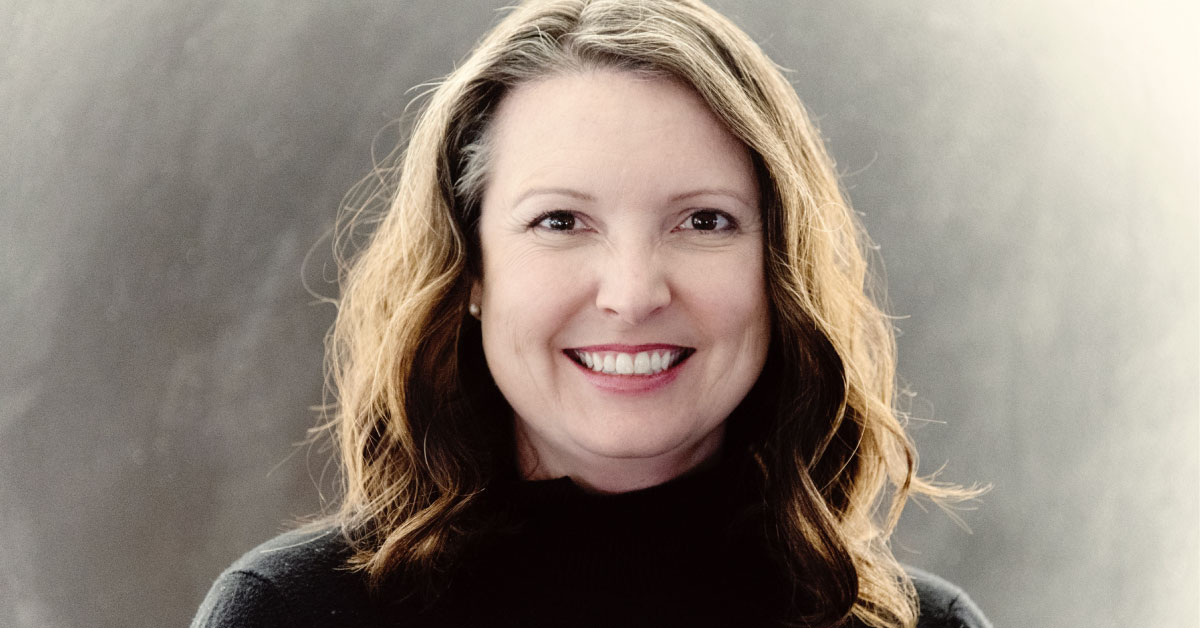Mental Health for Mom During COVID-19
In time for Mother’s Day: Tips from an expert on Mom’s mental health and raising well-adjusted kids during a pandemic.
Ah, the exciting life of mom during COVID-19: Home isolation, Zoom meetings, work deadlines, the laundry and dishes are piling up, my roots are so bad, the kids haven’t finished their school work, my spouse said he would mow the lawn two days ago, what I wouldn’t give for a manicure, not sure if it’s Tuesday or Sunday, it’s dinner time already?!

Moms are exerting extra time and effort to keep the family flowing during COVID-19.
To top it all off, there’s the frightening, 24/7 pandemic news that’s so hard to turn off.
With Mother’s Day on May 10, we want to not only praise the amazing job that moms are doing during the pandemic, but we also want to examine the particular challenges moms are facing.
Sarah Mallard Wakefield, M.D., Associate Professor, Chair of the Department of Pyschiatry and Director of Child and Adolescent Psychiatry Services at the Texas Tech University Health Sciences Center (TTUHSC) School of Medicine, spoke with us about the importance of celebrating Mother’s Day, talking to our kids about COVID-19, and what we can learn, as families, from this monumental event.
Why is it Important to Celebrate Mother’s Day During COVID-19?
“Even under normal circumstances, Mother’s Day is an important holiday, because moms are often the unsung heroes of our lives,” Wakefield said. During COVID-19, Wakefield points out how much extra time and work moms are exerting to keep the family flowing.
“Moms are, in general, the heart and soul of the family, the soft place kids can go and feel comforted,” she said. “Everyone’s needing more comfort right now, and moms are providing a lot of it, but maybe not receiving it in the way they usually do, such as seeing other moms in the school pick-up line or during ladies’ night out. To have a day when we talk about them, think about them and make them things is really important.”
How Moms Can Limit Stress During COVID-19
Wakefield offers several suggestions for moms (and dads!) to limit their stress while stuck at home, starting with getting outside. It seems like everywhere you scroll, there’s an article extolling the virtues of getting outside for fresh air and sunlight, but the benefits are true. Studies have shown a decrease of cortisol (a hormone used as a marker for stress) and heart rates for participants who spent time in nature. As long as social distancing guidelines can be followed, getting outside is always a good way to reset each member of the family.
Wakefield also recommends setting a schedule.
“We’ve had to create new schedules for ourselves, and it’s important to orient your day around different tasks,” she said.
For many of us, the isolation initially felt like a vacation. Wakefield cautions, “As it extends, it’s not healthy to live without structure.”
As distance learning becomes our new normal, being flexible with scheduling is important. Wakefield cautions against letting a daily schedule become a rigid “must” that adds more stress. She recommends sticking to the basics, such as: When are meals? When is school? When is bedtime?
According to Wakefield, social media is a blessing and a curse during this time.
“Orient what you’re using social media for very carefully,” she said.
She recommends using social media to connect to and experience things with other people. Use it for positive interaction and to feel better.
“If you are using social media to get inundated constantly with COVID-19 and pandemic information, it’s very overwhelming to the brain,” she warned. “It’s too much information to process and not a lot you can do about it.”
Wakefield advises that it’s good to be informed but quite the opposite to be inundated. She recommends at least two hours a day of no COVID-19 information.
Guiding our Kids Through COVID-19
How we respond to our anxiety is important for our kids, Wakefield said.

Sarah Mallard Wakefield, M.D.
Every study we’ve done shows that children’s responses to stressors are dependent on their parents’ responses,” she said. This doesn’t mean we should lie to our kids or hide information from them. Rather, it’s what Wakefield describes as having an “adapting mindset.” We need to acknowledge that this is an unusual time and that we are learning new ways to deal with it. The attitude Wakefield suggests is, “Yes it’s scary, but I’m OK, and I can tolerate it.” If our kids see us facing this uncertainty with honesty and adaptability, they will be able to do the same.
How Much Should We Tell Our Kids About COVID-19?
According to Wakefield, it’s not helpful to give kids information they can’t respond to or do anything about.
“It’s important that kids can trust that you’re the source for their information,” she said.
Particularly with older kids, this could mean keeping track of what they’re seeing on social media or the internet, and having conversations about what information is credible.
Adapt the way you talk to your child based on his or her age.
“If they ask questions, respond on their level,” Wakefield said. “Follow their lead on the amount of information they need.” It’s important to be honest but limited so the information is something they can process and act on, such as why they can’t visit a neighbor.
“A lot is going on besides just COVID,” Wakefield added. “Families are suffering economically, mental health issues are being compounded by isolation. It’s not easy, and everybody’s not supposed to be happy all the time.”
Taking the impossible pressure of perfection off of ourselves is vital as parents, and especially as moms.
“We’re going to do the best we can, follow the rules the experts have set out for us, and we’re taking it one day at a time,” she said.
Distance Learning During COVID-19
With schools closed and our kids’ taking their classes online, many parents are concerned that children aren’t getting the quality of education they “normally” would be. Many parents are wondering if they need to provide additional learning activities. Wakefield says, “Yes, but that doesn’t mean doing worksheets.”
A mother of children who are 3, 6 and 9, Wakefield explains that kids will learn on their own if presented with creative opportunities.
“It’s important how we classify learning,” she continued. “Learning can be learning a new dance and posting it to TikTok, being physically active, getting in the garden, doing fun art projects. We want to avoid kids playing video games all day long. Watching TV and playing video games aren’t a problem. But you don’t want them doing it all day, every day. ”
Wakefield points out that most kids will respond to their teachers’ one-on-one instruction well, and they might get through their school work faster than expected.
It’s important to look for cues from children in this strange, new world.
“Be flexible and know your kid,” she said. “If they’re having a hard day, missing their friends, put on that movie. Let them play that game. Be flexible if they’re struggling. Distraction is a great coping mechanism.”
What We Can Learn From COVID-19
News outlets are overusing the word “unprecedented” to describe the COVID-19 pandemic, Wakefield said.
“Drastic change is absolutely not unprecedented,” she argued. She compared the current pandemic with events such as 9/11, the World Wars and incidents throughout history of war and famine.
“Our parents grew up worrying a nuclear bomb could go off,” she reminded.
In other words, today’s pandemic is not unprecedented. And Wakefield sees a light at the end of the tunnel.
“As a society, I have no doubt we’ll come out of this and learn lots of things from it,” she said. “We can stay connected to people and do a lot of things that can lead us to have better mental health.”
Wakefield reiterated the importance of intentionality when it comes to using social media, taking special care not to inundate ourselves with COVID-19 news.
“Social media can create a mountain that nobody can see around,” she explained. “As we pan back, we can see that the mountain is part of a greater environment. Everything’s not the mountain. It’s hard to make decisions when all you see is the mountain and you haven’t looked at everything around it. You feel like all you can do is climb the mountain. But maybe, if you look farther out, you’ll see you have choices. You can walk around it, take a train beside it or get in a boat to get around it.”
As we continue to take the COVID-19 pandemic one day at a time, let’s take a moment to say thank you to all the moms who love us and comfort us no matter the circumstances.
Happy Mother’s Day!
Related Stories
Celebrating Veterans: TTUHSC’s General Martin Clay’s Legacy of Service and Leadership
From his initial enlistment in the Army National Guard 36 years ago to his leadership in military and civilian health care management roles, Major General Martin Clay’s career has been shaped by adaptability, mission focus and service to others.
Texas Tech University Health Sciences Center School of Nursing Named Best Accelerated Bachelor of Science in Nursing Program in Texas
The TTUHSC School of Nursing Accelerated Bachelor of Science in Nursing (BSN) program has been ranked the No. 1 accelerated nursing program in Texas by RegisteredNursing.org.
TTUHSC Names New Regional Dean for the School of Nursing
Louise Rice, DNP, RN, has been named regional dean of the TTUHSC School of Nursing on the Amarillo campus.
Recent Stories
The John Wayne Cancer Foundation Surgical Oncology Fellowship Program at Texas Tech University Health Sciences Center Announced
TTUHSC is collaborating with the John Wayne Cancer Foundation and has established the Big Cure Endowment, which supports the university’s efforts to reduce cancer incidence and increase survivability of people in rural and underserved areas.
TTUHSC Receives $1 Million Gift from Amarillo National Bank to Expand and Enhance Pediatric Care in the Panhandle
TTUHSC School of Medicine leaders accepted a $1 million philanthropic gift from Amarillo National Bank on Tuesday (Feb. 10), marking a transformational investment in pediatric care for the Texas Panhandle.
Texas Tech University Health Sciences Center Permian Basin Announces Pediatric Residency Program Gift
TTUHSC Permian Basin, along with the Permian Strategic Partnership and the Scharbauer Foundation, Feb. 5 announced a gift that will fund a new pediatric residency.
